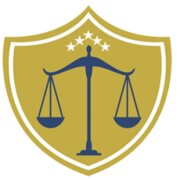Best Faith-Based Law Lawyers in Canada
Share your needs with us, get contacted by law firms.
Free. Takes 2 min.
Or refine your search by selecting a city:
List of the best lawyers in Canada
About Faith-Based Law in Canada
Faith-Based Law in Canada refers to the intersection of religious principles and the country's legal framework. It typically deals with issues where religious practices and beliefs interact with secular law. While Canada operates under a system of secular laws, individuals are allowed to follow religious practices within the scope of Canadian law. This can include matters of family law, employment, education, and human rights, where religious considerations may be taken into account.
Why You May Need a Lawyer
There are several situations where you might require the assistance of a lawyer knowledgeable in Faith-Based Law. Common scenarios include:
- Disputes within religious organizations, including governance and employment matters.
- Family law cases where religious laws or customs conflict with Canadian laws.
- Human rights cases involving the right to practice one's religion.
- Estate planning and end-of-life decisions influenced by religious beliefs.
- Negotiating agreements or contracts that incorporate religious clauses.
- Resolving conflicts between religious accommodations and workplace policies.
Local Laws Overview
Canada accommodates freedom of religion as a fundamental right, protected under the Canadian Charter of Rights and Freedoms. While faith-based considerations are respected, they must align with the overarching legal framework ensuring no harm or discrimination. Key local laws relevant to Faith-Based Law include:
- The Canadian Human Rights Act: Prohibits discrimination based on religion in various spheres, including employment.
- Provincial Family Law Acts: Each province has legislation that respects religious practices in family matters while prioritizing the welfare of children.
- Employment Standards Acts: Provide guidelines for religious accommodations in the workplace.
- Education Acts: Address the role of religious instruction and accommodations in publicly funded schools.
- The Multiculturalism Act: Supports cultural diversity and the inclusion of religious practices within societal norms.
Frequently Asked Questions
What is Faith-Based Law?
Faith-Based Law is a legal niche that considers religious beliefs and practices within the context of the secular Canadian legal system.
How does Canadian law deal with conflicts between religious laws and federal/provincial laws?
Canadian law prioritizes federal and provincial laws but allows for religious practices unless they conflict with fundamental rights, public safety, or discrimination laws.
Can Canadian courts enforce religious laws in family disputes?
Courts in Canada respect and consider religious laws and customs in family disputes provided they align with the country's legal standards and the best interest of children involved.
Are there legal protections for practicing my religion at work?
Yes, under the Canadian Human Rights Act, individuals are protected from discrimination based on religion, which includes reasonable accommodations at the workplace.
How can religious organizations resolve internal disputes under Canadian law?
Religious organizations often resolve disputes using internal mechanisms but can seek legal advice or court intervention if necessary, ensuring compliance with the Canadian legal system.
What role do religious beliefs play in estate planning?
Individuals can incorporate religious principles into their wills and estate plans, provided these comply with Canadian law and do not violate rights or public policy.
Do schools in Canada accommodate religious practices?
Yes, public schools in Canada make accommodations for religious practices where possible, balancing educational requirements with individual rights.
Can I legally include religious clauses in contracts?
Yes, religious clauses can be included in contracts, but they must comply with Canadian law and cannot contravene fundamental rights or obligations.
What legal resources are available for faith-based communities?
Faith-based communities can access several resources, including legal services, community organizations, and government bodies that provide guidance and support for faith-related legal issues.
Is Faith-Based Law the same across all provinces in Canada?
No, while the fundamental rights are consistent across Canada, specific legal applications and interpretations can vary by province due to distinct provincial legislation.
Additional Resources
For those seeking guidance on Faith-Based Law in Canada, consider the following resources:
- Canadian Charter of Rights and Freedoms: Understanding your rights regarding religious freedom.
- The Office of Religious Freedom: Engages with global and domestic religious freedom issues.
- Legal Aid Services: Provides free or low-cost legal help across provinces in Canada.
- Local Bar Association: Offers referrals to lawyers skilled in Faith-Based Law.
- Community Mediation Centers: Facilitate mediation between parties in religious or community disputes.
Next Steps
If you find yourself needing legal assistance in the field of Faith-Based Law, consider the following course of action:
- Consult with a lawyer specializing in Faith-Based Law to fully understand your rights and obligations.
- Gather all relevant documents and information related to your case or inquiry.
- Reach out to community organizations or mediation centers for preliminary discussions or assistance.
- Consider alternative dispute resolution methods, such as mediation or arbitration, to resolve issues amicably.
- Stay informed about your religious rights and responsibilities under Canadian law by consulting reliable legal resources and updates.
Lawzana helps you find the best lawyers and law firms in Canada through a curated and pre-screened list of qualified legal professionals. Our platform offers rankings and detailed profiles of attorneys and law firms, allowing you to compare based on practice areas, including Faith-Based Law, experience, and client feedback.
Each profile includes a description of the firm's areas of practice, client reviews, team members and partners, year of establishment, spoken languages, office locations, contact information, social media presence, and any published articles or resources. Most firms on our platform speak English and are experienced in both local and international legal matters.
Get a quote from top-rated law firms in Canada — quickly, securely, and without unnecessary hassle.
Disclaimer:
The information provided on this page is for general informational purposes only and does not constitute legal advice. While we strive to ensure the accuracy and relevance of the content, legal information may change over time, and interpretations of the law can vary. You should always consult with a qualified legal professional for advice specific to your situation.
We disclaim all liability for actions taken or not taken based on the content of this page. If you believe any information is incorrect or outdated, please contact us, and we will review and update it where appropriate.
Browse faith-based law law firms by city in Canada
Refine your search by selecting a city.















